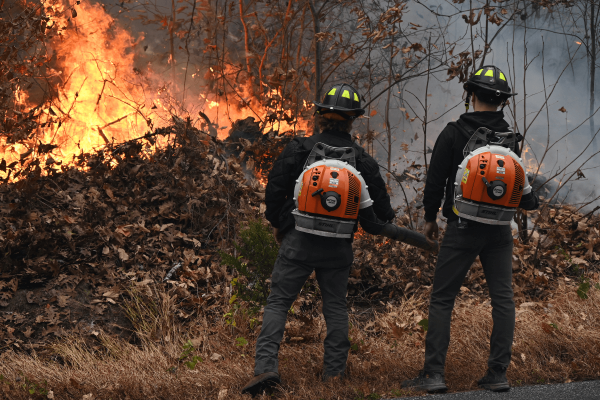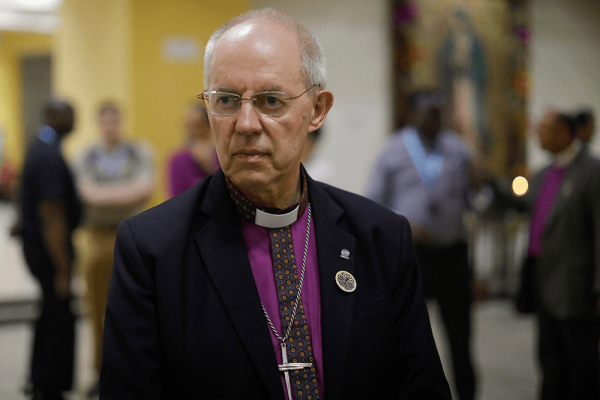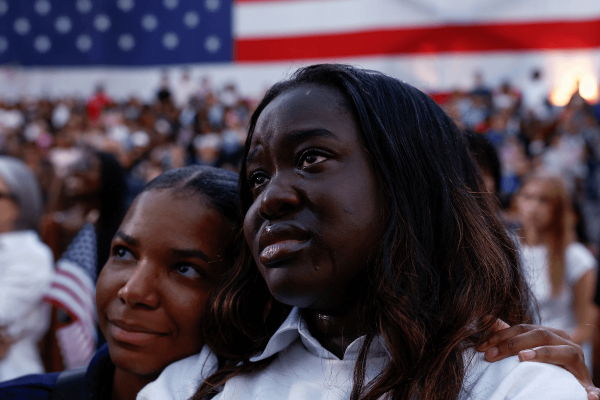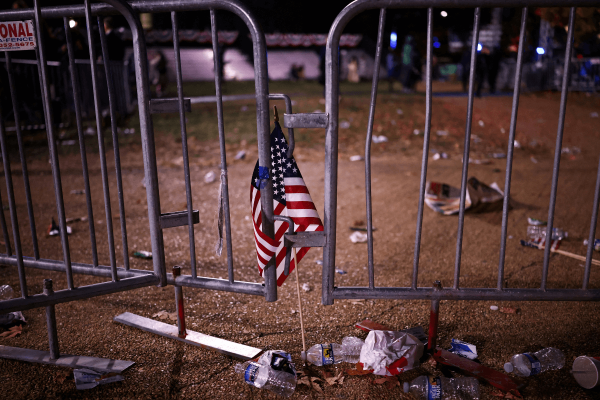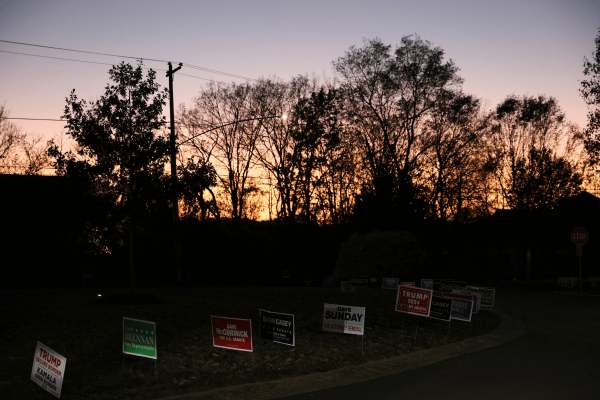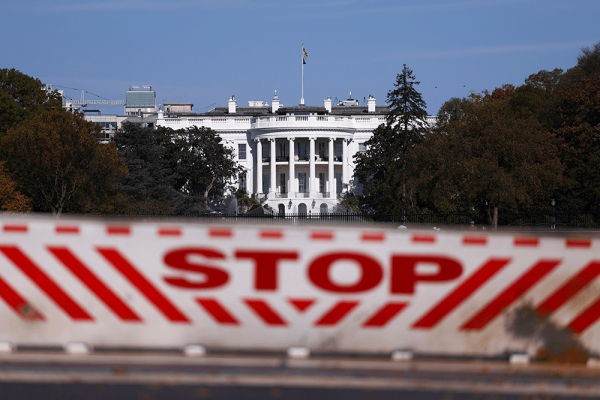The next four years will be a climate train wreck. Trump and his ilk will dismantle as many policies and regulations as they can. Autocrats and newly influential far-right parties the world over will be emboldened to “drill baby, drill.” More parts of the world will burn, flood, and turn into desert. Refugees — who are treated with God’s passionate care in the Hebrew Bible — will be scorned, vilified, detained, and deported at borders and in global northern countries around the world. It will be painful. And yet, based on the patterns already in place, the world will do its best to look away.
Heretic is a litany of theological inquiries wrapped in the skin of a horror movie. Like Legion, the frights of directors Scott Beck and Bryan Woods’ film are many, but its biggest scare isn’t demonic or paranormal or gory: It’s the unique terror of being caught in a theological conversation with a self-righteous man.
D. Danyelle Thomas, the digital pastor of Unfit Christian and the author of The Day That God Saw Me as Black, also finds theological meaning in fiction. One of the conversation partners for her book is the literature of Toni Morrison. I love Morrison because her characters are often struggling with life’s deepest theological questions while also proudly asserting that they are Black and beautiful. Thomas articulated this idea in her own words, saying, “I don’t navigate this world without my Blackness, so I certainly won’t navigate my relationship with God without it.”
Archbishop of Canterbury Justin Welby resigned “in sorrow” on Tuesday, saying he had failed to ensure there was a proper investigation into allegations of abuse by a volunteer at Christian summer camps decades ago.
Rev. Jes Kast started planning for the Sunday after the election in midsummer, before her three-month sabbatical. She’d timed her leave intentionally, wanting to return to her congregation well-rested, right before one of most contentious elections in U.S. history. “I had a sense in my spirit that this next phase in ministering, whatever the outcome of the election, would require me to be as spiritually grounded as possible,” said Kast, who pastors Faith United Church of Christ in State College, Pa.
Concession speeches can reveal a glimpse of a politician’s soul, a rare look behind a curated facade. All they have poured their life into, with boundless ambition, hope, and relentless energy, has been lost. They are laid bare, vulnerable. And their words now don’t have to be calculated or pretested by a focus group.
I’ll admit I struggle to face the reality that many in our country — roughly 51 percent of the popular vote, according to current estimates — are feeling some combination of elation, pride, and excitement that their chosen candidate has won. Even in my pain and grief, I know that as a follower of Jesus, I am called to pray for the incoming Trump administration and the people who voted for it. I’m committed to doing that work, but I confess: It feels hard right now.
As I’ve thought about what will sustain me in the days ahead, I’ve been heartened to remember that we are not the first people who have struggled to be faithful under the thumb of oppressive leadership. I’ve especially been thinking of the stories in Exodus: Shiphrah and Puah, the courageous midwives who rejected Pharaoh’s demand to murder male children (Exodus 1:15-22), God’s promise to Moses (Exodus 3:12), and Miriam who led her people in song after escaping the confines of slavery in Egypt (Exodus 15:20-21).
My 8-year-old came downstairs with tears in his eyes after learning the news today.
“What will happen to the turtles?” he cried. He has been haunted by Trump’s words at the Republican National Convention, as he shouted “Drill, baby, drill!”
Trump’s campaign was marked by racist and misogynistic rhetoric, promises of authoritarian tactics including dramatic expansion of executive power and retribution for his political rivals, as well as policies that appealed to the anxieties of conservative religious communities, especially Christians.
As faith and justice leaders absorbed the news of a second Trump term, many pointed to the importance of fostering and caring for self and neighbor while figuring out what to do over the next four years.
